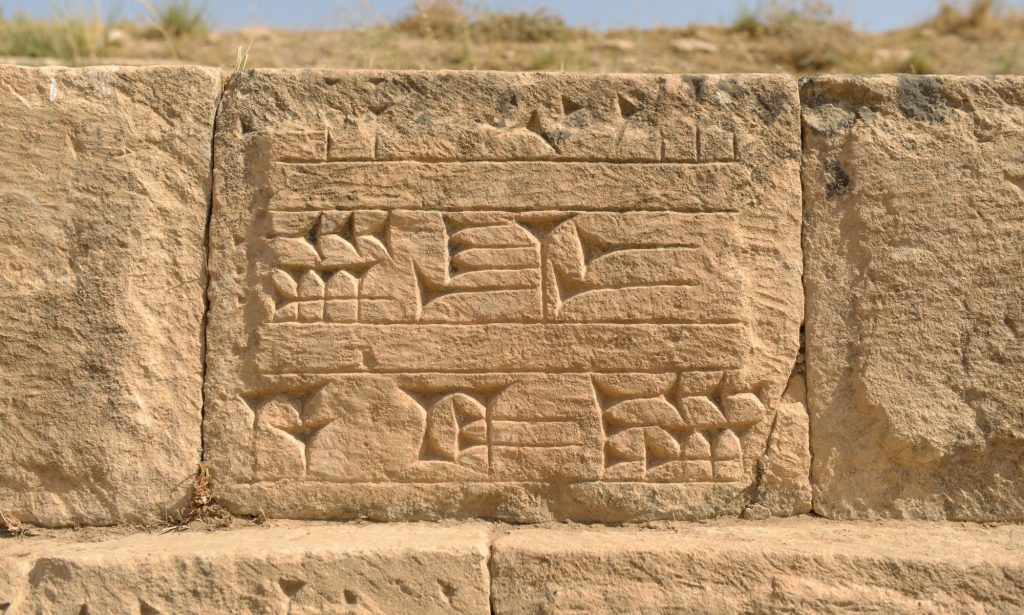The Parliamentary Office of Science and Technology (POST), supports parliamentarians by providing concise up-do-date reviews on topics that are likely to be debated in parliament in the coming months. POST, which also covers the social sciences, has put out an open call for academic researchers to contribute to policy reviews on a range of topics. Find out which topics will be covered and submit your research evidence to help inform parliamentary debate.
Author: carolinecross
Digital archive of ‘Punk in the East’ puts the pogo back into punk
A new website that catalogues punk memorabilia from the 70s and 80s is set to become the UKs largest digital archive of punk ephemera. It’s the latest development from Professor Matt Worley’s research exploring the relationship between youth cultures, politics and social change. Find out how you can contribute to the online archive.
 Punk in the East is a digital collection of original punk photographs, gig ticket, posters, clothing and ephemera from Norwich, Norfolk and across East Anglia. As content continues to come in it is fast becoming the largest digital UK punk archive.
Punk in the East is a digital collection of original punk photographs, gig ticket, posters, clothing and ephemera from Norwich, Norfolk and across East Anglia. As content continues to come in it is fast becoming the largest digital UK punk archive.
Development agencies need to improve their language
How can aid agencies effectively support communities and ‘listen to their needs’ if their staff don’t speak the local language? In an article written for The Conversation, Professor Hilary Footitt and Dr Wine Tesseur tell us about their research which sheds light on the issues and identifies ways to address them.
Reproduced under Creative Commons licence
After the Oxfam sexual exploitation scandal in Haiti hit the headlines earlier this year, 22 aid agencies published an open letter declaring that they would “take every step to right our wrongs and eradicate abuse in our industry”. They made a commitment to “listen and take action”.
There is nothing new about NGOs claiming that they “listen” to communities and act on their feedback. A cursory glance at NGO publicity materials reveals that they typically claim that they empower communities by listening and involving them in decisions about aid projects.
It is therefore reasonable to assume that aid workers share the same language as local communities (or at least that they use good interpreters). Otherwise, how could aid providers and aid recipients communicate with one another effectively? You might also assume that it is relatively easy to translate basic development terms into local languages. Development NGOs promote common goals, such as gender equality and human rights. Surely organisations must use common interpretations of these words when interacting with the people that they aim to help?
But our research suggests that this is typically not the case. We conducted a three-year project to explore the role of languages in international development, in conjunction with UK-based NGO INTRAC. We interviewed dozens of NGOs, officials from the UK’s Department of International Development (DfID), and conducted field research in developing countries. Our data led us to arrive at three startling conclusions.
Sharing the benefits of healthy hay (Sainfoin)
Sainfoin is a plant that’s been grown by farmers for centuries to feed livestock, but its use has declined in recent decades. Research led by Professor Irene Mueller-Harvey and others has investigated the plant’s bioactive components – tannins. And it’s sparking a revival in its use. Reading’s Dr Sokratis Stergiadis tells us about a recent open day to explain the benefits of growing Sainfoin to farmers.
Sainfoin is a drought-resistant forage crop that fixes nitrogen and helps prevent parasitic worm infections in cattle. It also improves meat quality, helps to reduce methane production in cattle and encourages pollinating insects.
To encourage more farmers to grow Sainfoin and to share the science behind its beneficial effects, researchers from the University of Reading teamed up with staff from Cotswolds Seeds Ltd, Sainfoin’s main supplier in the UK, to host an Experience Day for 50 farmers at Honeydale Farm in Gloucestershire.
Reading researchers excel in O2RB Impact Awards
Reading social sciences projects to integrate hospital data and to improve language learning in the classroom have been recognised in this year’s O2RB Excellence in Impact Awards.
Dr Weizi Li (Henley Business School) has won an Excellence in Impact Award and the research of Professor Suzanne Graham (Institute of Education) was highly commended.
The awards, which celebrate innovative social sciences projects that have made a social or economic difference to individuals, communities, and societies were presented at a ceremony attended by several Reading researchers, at St Anne’s College, Oxford on 19th April.
Protecting Iraq’s cultural heritage
Professor Roger Matthews’ research focuses on the origins of the earliest farmers in the Eastern Fertile Crescent of Iran and Iraq. This work puts him at the heart of discussions about how best to protect Iraq’s cultural heritage, which has long been threatened by conflicts in the region. Here he tells us more about his work and his invitation to speak at a UN Human Rights Council event earlier this month.
Jerwan Aqueduct, Inscribed Ashlar (© Land of Nineveh Archaeological Project)
Glastonbury Abbey uncovered
Glastonbury Abbey has played an important part in British history for hundreds of years. Legend says that it is the burial place of King Arthur and it was regarded to be the site of the earliest church in Britain. Now, thanks to a unique archaeological research collaboration and digital reconstruction, we can see parts of the abbey as they appeared at its zenith in the Middle Ages. Here, Dr Gemma Watson, from the Department of Archaeology at Reading, reveals all.
The Anglo-Saxon Church in its modern setting: phase 3 c.1100 AD, © The Centre for the Study of Christianity & Culture, University of York
Communicating Suffrage and Citizenship with Reside Dance
On 6th February 2018, the UK celebrated 100 years since some women and all men were given the vote. In the preceding months, Dr Jacqui Turner, Lecturer in Modern History and an expert on Nancy Astor, advised on a range of projects to mark the centenary in creative and unusual ways, both in Parliament and locally in Reading. Celebrations took place around the country, and in Reading, audiences experienced a public dance and debate, created and performed by Reside Dance, that brought the story of #Vote100 to life. Here, Dr Turner tells us how her involvement in  this collaborative project was one of the most challenging and inspirational experiences of her research career.
this collaborative project was one of the most challenging and inspirational experiences of her research career.
Images courtesy of Brenda Sandilands
Promoting educational equality: from the bottom to the top – Westminster Symposium 27 February
Despite numerous initiatives to tackle educational inequalities and encourage social mobility, little has changed in the past 50 years. Here, Dr Carol Fuller, Associate Professor at Reading’s Institute of Education invites you to join her at a symposium in Westminster on 27 February which she hopes will help change the way policy-makers think about education.
Turning education policy on its head
Our research shows that activities that build confidence, resilience and self-efficacy outside the classroom can make a real difference in the classroom. But despite a wealth of evidence and research, activities like these are not part of the formal curriculum. And education policy-makers remain transfixed with attainment figures and grades.
On the 27 February, I will be joined by education experts and practitioners at a symposium in Westminster to figure out why the educational attainment gap between “the haves” and “the have nots” shows no change.
Designing information for public understanding
By Dr Alison Black, Research Professor, Centre for Information Design Research.
As January gives way to February, many UK tax payers sigh with relief as they submit their tax returns, often uncertain that they have provided the information HMRC require or have filled out their forms correctly. Filling out forms is just one of many everyday interactions with information, as is using signs to reach a destination, or following written instructions or diagrams.
Good information design ensures that people find such things easy to use.
At the University of Reading, the Department of Typography & Graphic Communication has pioneered research and teaching in information design – a discipline that brings together graphic design, psychology, and linguistics to work together with specialists, for example in health, meteorology and law, who need to communicate information to non-specialist decision makers and the public.
 This evening Reading’s Centre for Information Design Research (CIDR) is joining parliamentarians and researchers and practitioners in information design to celebrate its recent, edited book Information Design Research and Practice (Routledge 2017). In an event hosted by University of Reading’s Chancellor, the Rt Hon. the Lord Waldegrave of North Hill, and organised with the All Parliamentary Design and Innovation Group, guests will discuss how information design can be used to support people when contexts are complex and decisions are important for their safety, well-being and opportunity.
This evening Reading’s Centre for Information Design Research (CIDR) is joining parliamentarians and researchers and practitioners in information design to celebrate its recent, edited book Information Design Research and Practice (Routledge 2017). In an event hosted by University of Reading’s Chancellor, the Rt Hon. the Lord Waldegrave of North Hill, and organised with the All Parliamentary Design and Innovation Group, guests will discuss how information design can be used to support people when contexts are complex and decisions are important for their safety, well-being and opportunity.
CIDR’s research projects touch just these kinds of areas, from current AHRC-funded research on public communication about anti-microbial resistance, and projects with Reading’s meteorologists, funded by NERC and DfID, on the best way to communicate weather forecasts, to work with the National Offender Management Service on tools to reduce violence by improving communication between prisoners and officers.
The UK leads the way in many aspects of public information provision, including its award-winning gov.uk website, but there is still a long way to go in communicating effectively in many aspects of people’s lives.
—







